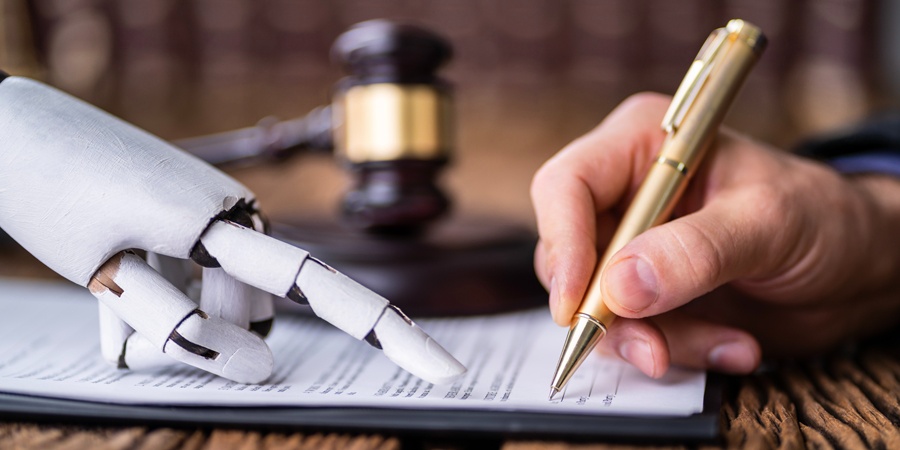Global tech ambitions drive use cases for maturing technologies such as artificial intelligence (AI), and one startup is willing to pay US$1 million to put their AI chatbot to the test in an actual courtroom.
Referred to as the world’s first “robot lawyer,” DoNotPay’s AI chatbot is set to make history as the first AI to defend a case — fighting a traffic ticket — in court. Technically, electronic devices such as smartphones and earphones are not allowed in hearings.
As part of an advocacy move, the firm’s founder, Joshua Browder, explained that the court proceeding will take place in a location that will consider the wireless earphones as a hearing aid.
Through the device, the AI chatbot will give prompts to the defendant on how to best argue their case against a speeding ticket. The landmark case is designed as a test for DoNotPay’s AI-powered services, and they will shoulder any fines incurred if the case is lost.
Related: First ‘Robot Receptionist’ in Middle East Starts Work at Smart Dubai
DoNotPay has already used AI-generated form letters and chatbots to help people secure refunds for in-flight Wi-Fi that didn't work, as well as to lower bills and dispute parking tickets, among other issues. According to the CEO, they have won more than 2 million customer service disputes and court cases on behalf of individuals against institutions and organizations.
With the advancements in AI technology, models are being trained and developed to be more human-like and may prove beneficial in making unbiased decisions. One litigator, however, shared his dissenting opinion on the robot lawyer concept, suggesting that people are better off hiring real-life lawyers, no matter how advanced the AI gets. Reading body language and making real-time decisions are human factors that AI technology is not yet fully capable of.
While the ethics of using robot lawyers is a topic of ongoing debate, this technology can be particularly beneficial for low-income individuals and small businesses. The use of AI in legal services is not anticipated to have the support of legal parties as questions arise about the accuracy and reliability of the legal advice provided by these systems.
It is important to continue to monitor the development and use of AI technologies to ensure that they are used in ways that are fair and beneficial for society as a whole.
Feature: Technology Advancements Are Upon Us: What Will the World Become











